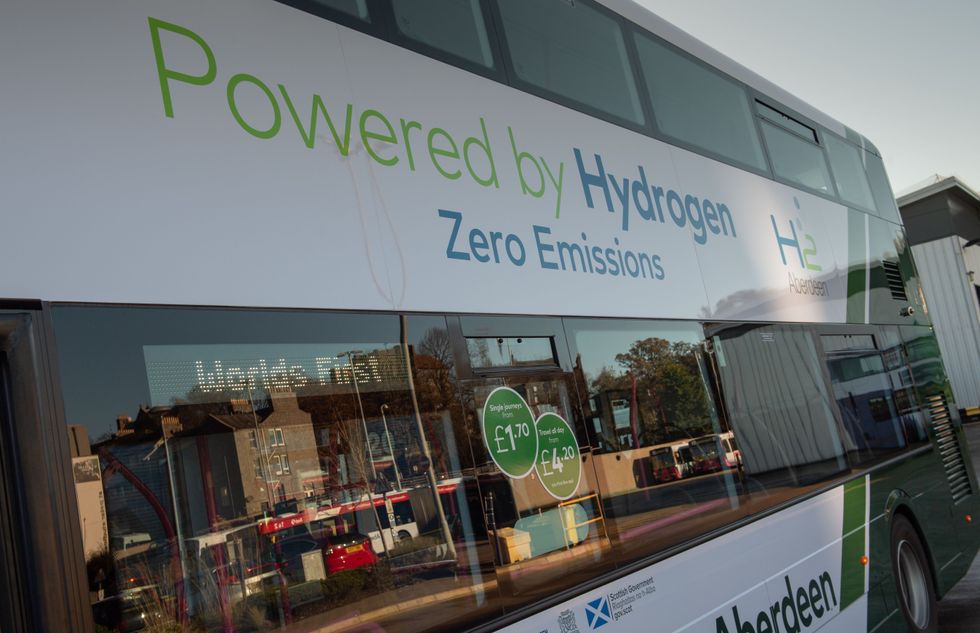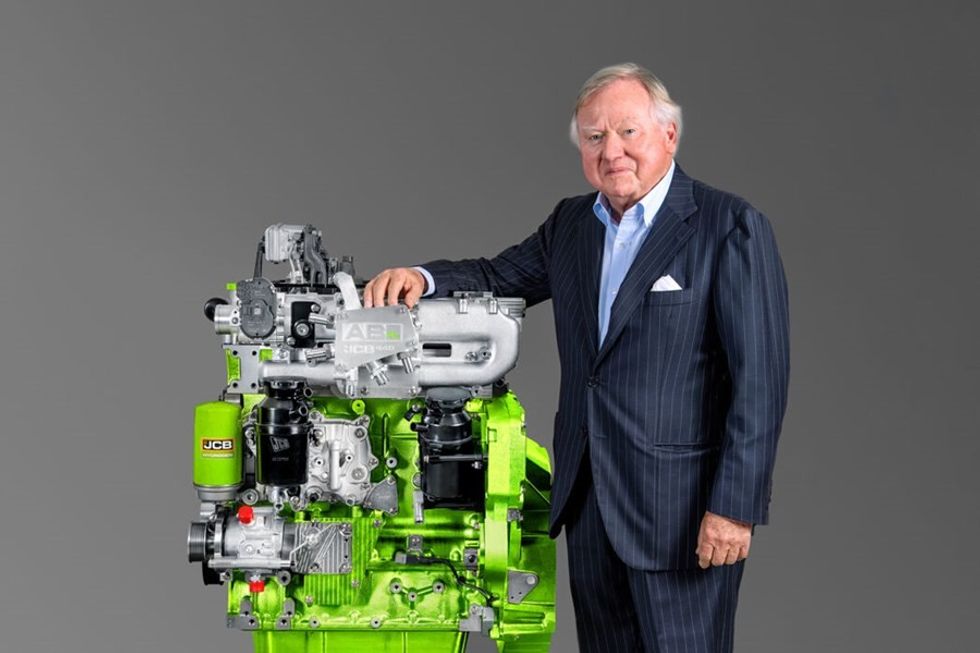Hydrogen vehicles have been handed a major boost after one of Britain’s most successful companies was given the green light to use the fuel more readily.
JCB has achieved a major breakthrough in hydrogen technology after securing approval from multiple European licensing authorities to commercially use its hydrogen combustion engine in machines.
The construction equipment manufacturer has become the first company to develop a fully functioning hydrogen-fuelled combustion engine for its sector.
The landmark development marks a significant step forward in zero-emissions solutions for agriculture and construction, while boosting the popularity of hydrogen for general use across motoring.
Do you have a story you’d like to share? Get in touch by emailing[email protected]

JCB said it was a ‘very significant moment’ for the brand
GETTY
The ambitious project represents a £100million investment from JCB, with a dedicated team of 150 engineers working on the development for more than three years.
The scale of the initiative demonstrates JCB’s commitment to advancing hydrogen technology.
The Netherlands Vehicle Authority RDW was the first to grant certification for JCB’s hydrogen engine, paving the way for sales in the country.
Ten additional European authorities have followed suit, including Great Britain, Northern Ireland, Germany, France, Spain, Belgium, Poland, Finland, Switzerland and Liechtenstein.
There is optimism that further certifications will be given from other countries throughout 2025.
Lord Bamford, Chairman of JCB, praised the development of hydrogen and said it was a “very significant moment” for the Staffordshire-based company.
He added: “To start the New Year with certification in place in so many European countries bodes very well for the future of hydrogen combustion technology.”
Real-world testing of the hydrogen-powered equipment at customer sites is now at an advanced stage and progressing well, marking a crucial phase in the technology’s development.
Lord Bamford continued: “I couldn’t have hoped for a better start to the year. Most of all, I am delighted for our team of British engineers who have worked tirelessly to reach this stage.”
The formal type approval and certification marks a significant milestone, clearing the way for the sale and use of hydrogen engines across the UK and Europe.
According to the December 2024 Hydrogen Strategy Update to the Market report, there are around 265 registered hydrogen vehicles in the UK, including cars, vans, buses and HGVs.
It contained details about the Zero Emission Heavy Goods Vehicle and Infrastructure Demonstrator Programme which aims to look at how hydrogen fuel cell vehicles could be used on roads in the future.
LATEST DEVELOPMENTS:

Lord Bamford with the JCB hydrogen engine
JCB
It will focus on 40-44 tonne HGVs and is set to be in place by March 2026. Following this, there will be a five-year demonstration period, where data from the programme will be published to inform fleet operators’ commercial investment decisions.